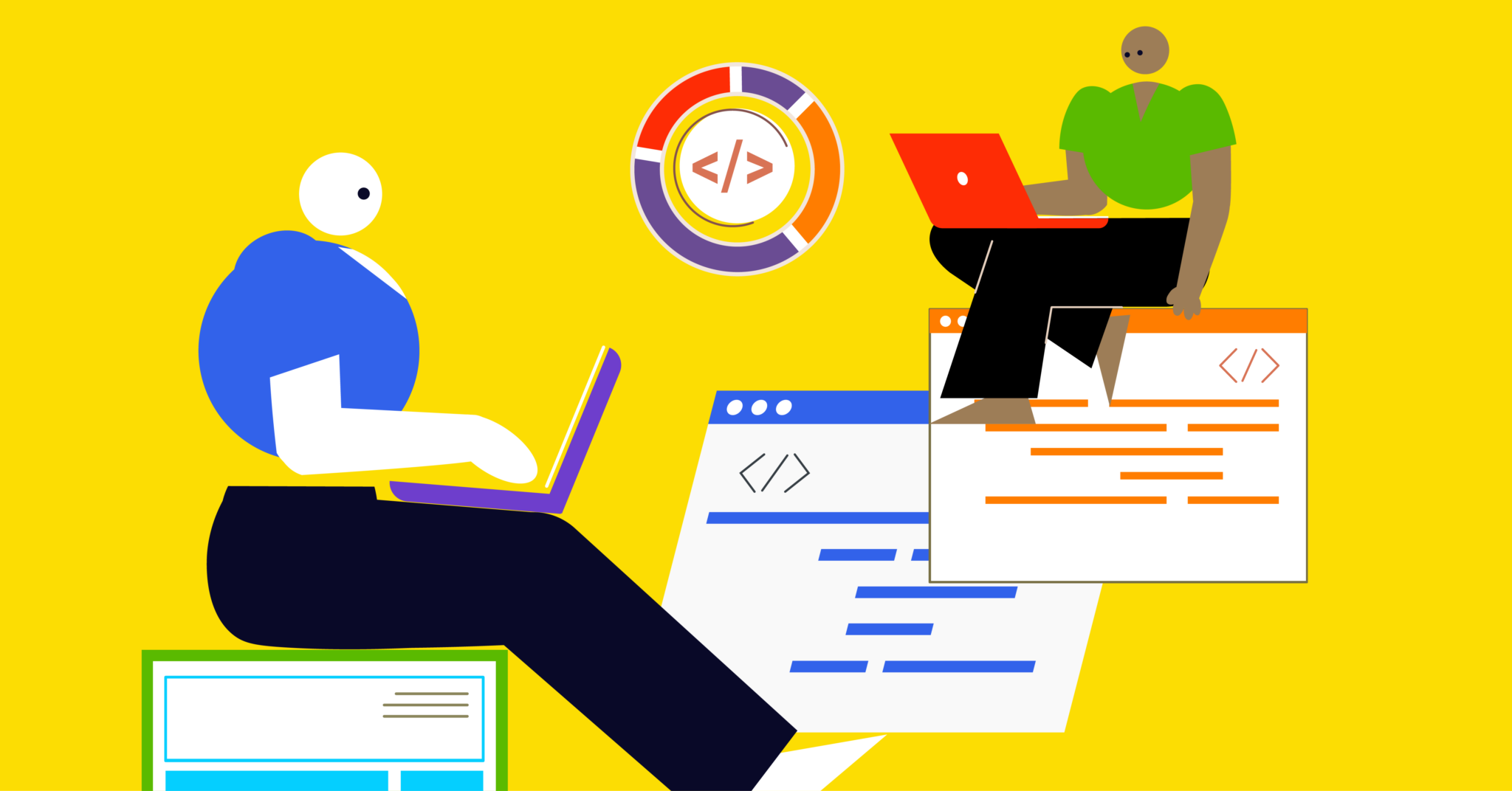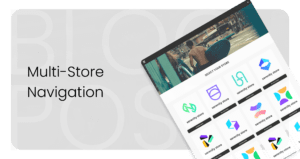Which of these stories sounds most familiar to you?
Your alarm goes off in the morning. You load your fitness app for a session of cardio, then sit down at your computer for a day of work.
Or it’s the weekend, the kids are going wild, so you turn on the TV, settle them down, and take a moment to breathe while scrolling through your phone.
The answer is, it doesn’t matter.
A world without computers, big, small, and microscopic, would radically change these scenarios every day. This is the effect programmers have had on our lives.
With International Programmers’ Day spotlighting the achievements of programmers around the world, we wanted to look a little closer to home. In this spotlight, we’re celebrating Poom, our Head of Platform, and Ash, our Solution Architect!
Guys, Introduce Yourself and What You Do At Brikl
Poom: Hey there, I’m Poom, and I’m the Head of Platform at Brikl. So I’m leading front-end and infrastructure development to help Brikl work efficiently, helping developers when they need it.
Ash: My role at Brikl is Solution Architect. My responsibilities involve improving the developer experience, building developer tools, and finding better ways to deliver documentation to developers. This helps integrate our products into existing systems using Brikl SDKs or APIs.
-png-1-1.png)
Poom, you started building game modifications when you were 6. What kind of mods did you make and how did that lead to you building software?
When I was six, I started playing Minecraft, which is a game about building. I created some mods that provided custom lighting and a 3D model of a boat to help me play in a much more fun way with my friends.
Then when I entered middle school, my knowledge of Java and building web apps helped me sell my products in-game. Afterwards, I started learning how to develop more web apps and submitted them to school competitions.That’s how my journey started!
Ash, How Did You Get into Programming?
I was a late bloomer. As an Indian, I had three options: soldier, engineer, or disowned son. When I first came across programming, the third option started looking extremely attractive. I was love at first gigabyte. Picture me, a blooming nerd in year 7, probably already with a healthy beard and a not-so-healthy obsession with Jennifer Lopez.
My older sister—not as blessed with nerdiness as me—was in university at the time and had a computer programming tutor to keep her on top of her programming course. I was totally mesmerized by what I saw on the computer screen—blue, with fuzzy text running across the surface with seemingly no rhyme or reason. I wanted, no needed, answers.
-png-1.png)
I hounded my poor sister with a million questions: What do those symbols mean? What do they do? How do I do that?
She laid it out for me simply, explaining that what she was doing was called programming. Programming, she said, was when you wrote code and it would draw something on the screen. And that was it.
How Did Things Take Off After That?
Poom: I went to a lot of coding competitions and started to develop a bunch of software products for myself, one which used physical web technology. I went to meetups and hackathons, and many people suggested that I give up school. So I dropped out when I was in the tenth grade and started looking for internships while going to more hackathons.
I landed myself one full-time job when I was 15, and then I got invited to work at a startup in San Francisco. I was there for almost two years.
How Fundamental is Hacking When It Comes to Computer Science?
Poom: Hacking is all about curiosity: computer science by itself lets you learn the fundamentals because you’re curious.
When I was a kid, I started to wonder, “How does the computer know which code to execute?” “How does it know to display this photo when I write some code, let’s say, in C++?”.
So, when you’re curious, you keep on reading and experimenting with other things.
-png-1.png)
Hacking means trying to get the computer to do what it is not supposed to do. That’s how the industry started. At the beginning the internet was just a bunch of text protocols. Back then all you could do was send texts and receive texts. But the more people used the internet, the more people got curious, and they started to find different things to do with it.
In order to be a good computer scientist or programmer, you need to know how to hack. Not just do things people have done before you, but to aspire to do something more special, trying to be experimental and to tinker with new technologies. That’s what it means to be a programmer.
Ash, How Do Approach Coding?
I like to have a complete understanding of a problem because it gives me a better idea of how much time and resources it will take to come to a solution that meets all the requirements.
Having the full picture and taking into account any potential issues makes it possible to come up with a plan B, or even a plan C. Optimism is good, but practicality is best. That way, I don’t get upset when I come across obstacles.
Poom, you've organized a bunch of hackathons and events. What's your goal with these events and what do you want people to experience?
I’ve organized a bunch of events, like the Stupid Hackathon Bangkok, which is a hackathon in Thailand. And boot camps, like young careers camp. So, my main goal was to introduce hacker culture to Thai people.
In most business hackathons, much of the time the developer ends up following the instructions. But I want to empower the developer so that they can also participate in the formation of the product.
-png-1.png)
It’s similar to what we do here at Brikl where we have the app teams. So developers are not only programming, but they can also provide a lot of feedback.
This is similar to what I do in a hackathon because people are not only coding, but they ideate a lot. They’re trying to find the next cool thing to do and I think that’s very important. I learned this a lot when I started attending hackathons. It’s like a whole new world where you not only get to experiment with new technologies, but to find problems that you face day-to-day and try to solve them with your own, your own hacky ways.
What's The Best Thing You've Achieved With Your Skills So Far?
Poom: My proudest project would either be automation or my simulation. I try to do a lot of automation to make my life better, for example, I created a system where I can organize an event without a machine. I could gauge event needs: the number of people, capacity etc., and the system would then automate making calendar appointments.
Things like this make it really cool to be a developer, when you can just write automation code to do things for you.
I also started writing simulations, where let’s say, you can simulate coastlines and mountains and nature with language, using GLSL and TypeScript and Rust.
Being able to simulate nature with mathematics is a pretty fun feeling where you don’t take nature for granted but you also observe what it has to offer and learn about it in terms of mathematics. This is a real example of really fun things programmers can do that can shift your perspective.
Who's Been Your Greatest Influence When It Comes to Your Programming Ambitions?
Ash: If the question’s about inspiration and role models then easy, Elon Musk! The work he is doing for humanity and the advancement of science is outstanding.
-png-1.png)
Poom: There’s someone I met in the community, his name is Ty. He is one of the people I met back in the Bangkok meetup and we are still friends to this day. He is a JavaScript musician who programs his own musical instruments using JavaScript. And he also makes a lot of automation, which is the reason I adore him so much. Another thing is he’s also very humble and very kind while being one of the best JavaScript developers in Thailand.
He’s taught me a lot about humility, about why I shouldn’t only be a good programmer, but also behind others when people need help. I think I learned a lot from him, not only in the technical areas, but also how to be a better human in general.
What Tools and Resources Would You Recommend to Beginner, Intermediate and Expert Coders?
Ash: If the question’s about inspiration and role models then easy, Elon Musk! The work he is doing for humanity and the advancement of science is outstanding.
-png-1.png)
Poom: There’s someone I met in the community, his name is Ty. He is one of the people I met back in the Bangkok meetup and we are still friends to this day. He is a JavaScript musician who programs his own musical instruments using JavaScript. And he also makes a lot of automation, which is the reason I adore him so much. Another thing is he’s also very humble and very kind while being one of the best JavaScript developers in Thailand.
He’s taught me a lot about humility, about why I shouldn’t only be a good programmer, but also behind others when people need help. I think I learned a lot from him, not only in the technical areas, but also how to be a better human in general.
What Tools and Resources Would You Recommend to Beginner, Intermediate and Expert Coders?
Poom: So, let’s start with beginners. You can learn a lot from resources like Free Code Camp and dev.to. There are also a lot of articles that explain the design decisions behind things and YouTube channels that explain the intricacies of multiple programming languages.
For intermediate and advanced coders, I would recommend watching the greats talk, love, like Gosling, Richie, Rossum, or from other people who created the programming languages and the tools we use.
-png-1-1.png)
They give really great Insight on why they designed a programming language, the framework or technology the way they do: it’s really mind-opening. And you see that it’s all about simplicity and ease.
Talks such as Simple Made Easy by Rich Hickey are a must-watch. Also, there are a lot of books in this area around the people and interpretation of future programming. So it reading these fundamentals, why we implement things the way we do I think helps you to understand why technology side is designed the way it is today and how to push it forwards.
Ash: Personally, I don’t think it matters what tool someone chooses to use when solving a problem as long as it works for them. It could be a notepad, command line etc.
I started programming JavaScript through nodepad++. At the time I found it to be an excellent tool for writing code.
Later, I used several tools and created my own using Visual Studio, called Propan IDE.
As tools continue to improve in the programming world, so does the ability to handle several tasks in one place. My current preferred IDE is IntelliJ IDEA.
-png-1-1.png)
On A Side Note, Poom, You're Massively into plushies! Where Did This Come From?
Haha, How About You Ash? What are You into When You’re Not at The Computer?
When I was at university I used to pop & lock! I won several competitions and was asked to perform at public events. I love to garden because after time and effort you get to watch things grow, and I enjoy photography because it allows me to capture moments in time and beautiful landscapes.
What's The Best Thing About Being a Coder at Brikl?
Poom: First would be that the team listens to a lot of feedback, for example, if I give feedback to Tobias (Brikl’s CTO) about who we need or how we should improve a process, everyone listens.
Another thing is that it’s really a place where I’m free to experiment, like with new technologies. I can suggest, for example, “Oh, I want to try this design pattern,” everyone’s generally okay with that. They are very open to what you want to do, and what you want to learn.
If I want to give talks or organize events they’re okay with all of that. I think it really helps when you don’t only stick with what you know but you also challenge yourself to try new things. A good developer has an interest in other areas. So I think this is a very special thing with Brikl being open to feedback, being open to you exploring multiple paths.
A massive thank you to our two featured programming superstars and a shout out to all the coding wizards who work across the Brikl platform. If you enjoyed this feature, why not check out Michael J. Coles: The Way the Cookie Crumbles?
Source: Glazestock.com. Illustrators: Matheus, Rudityas, and Kalathingal.





